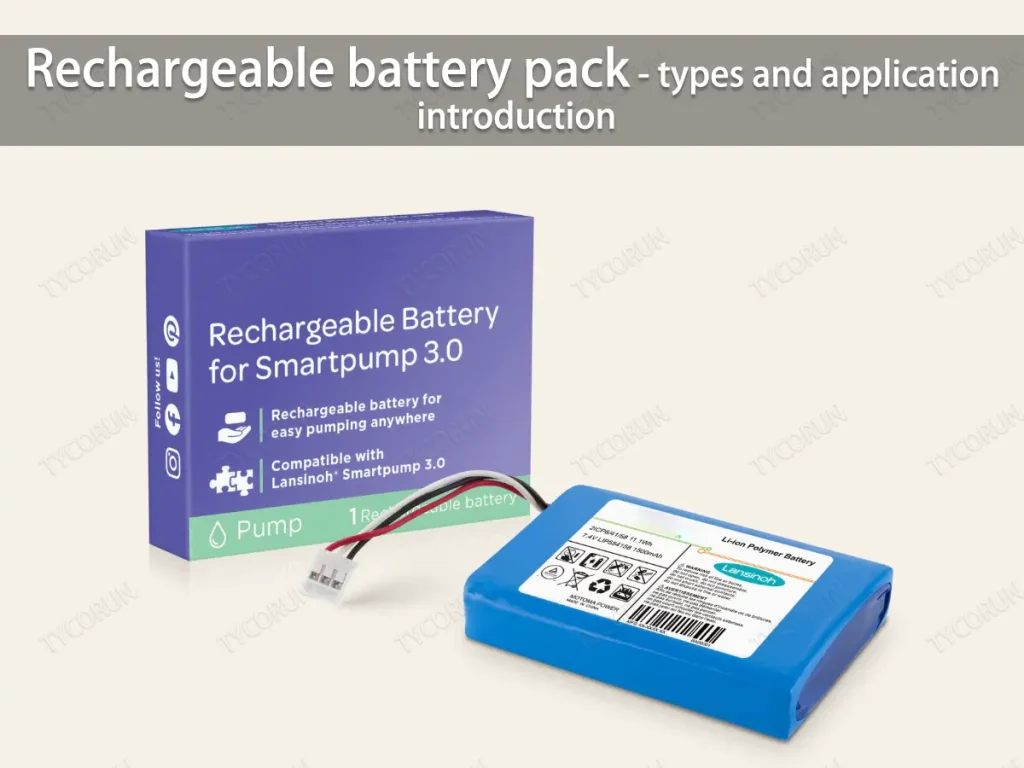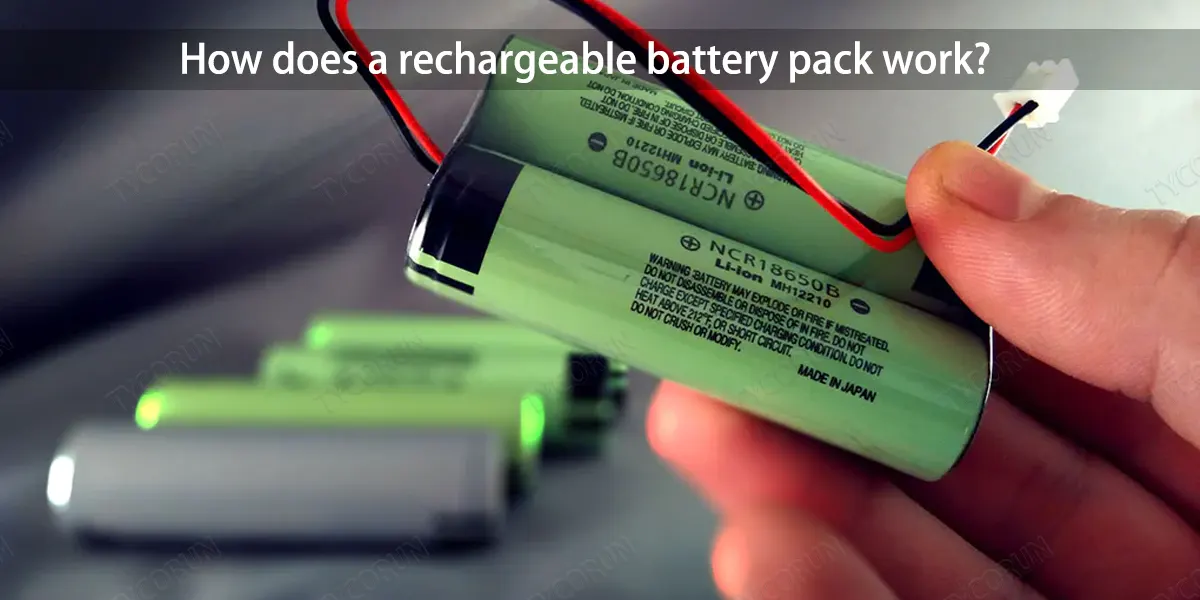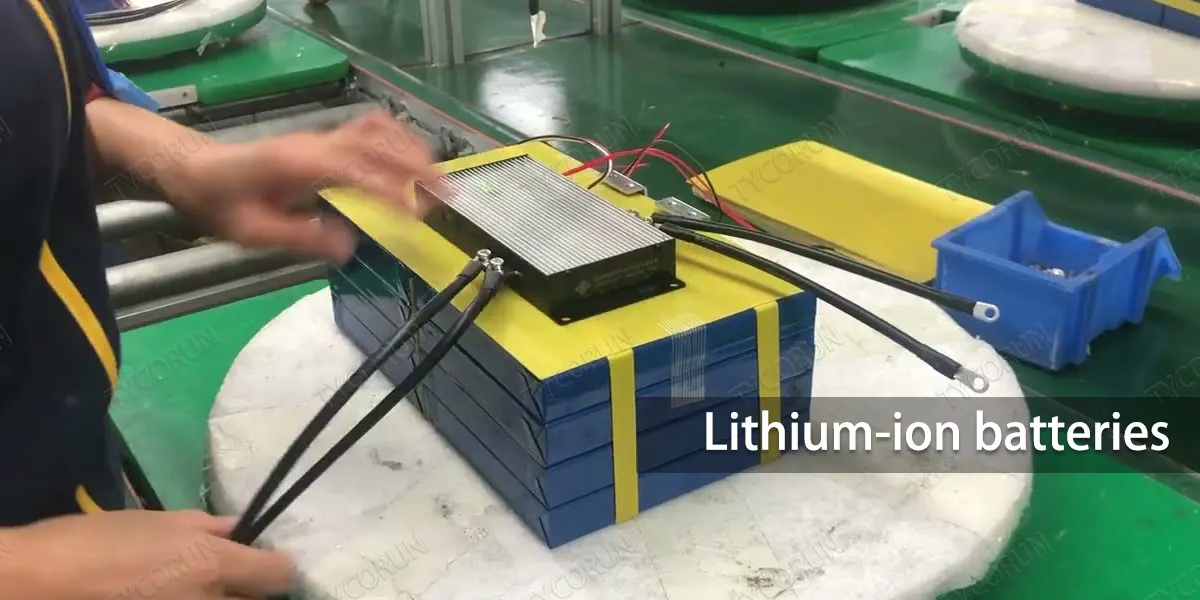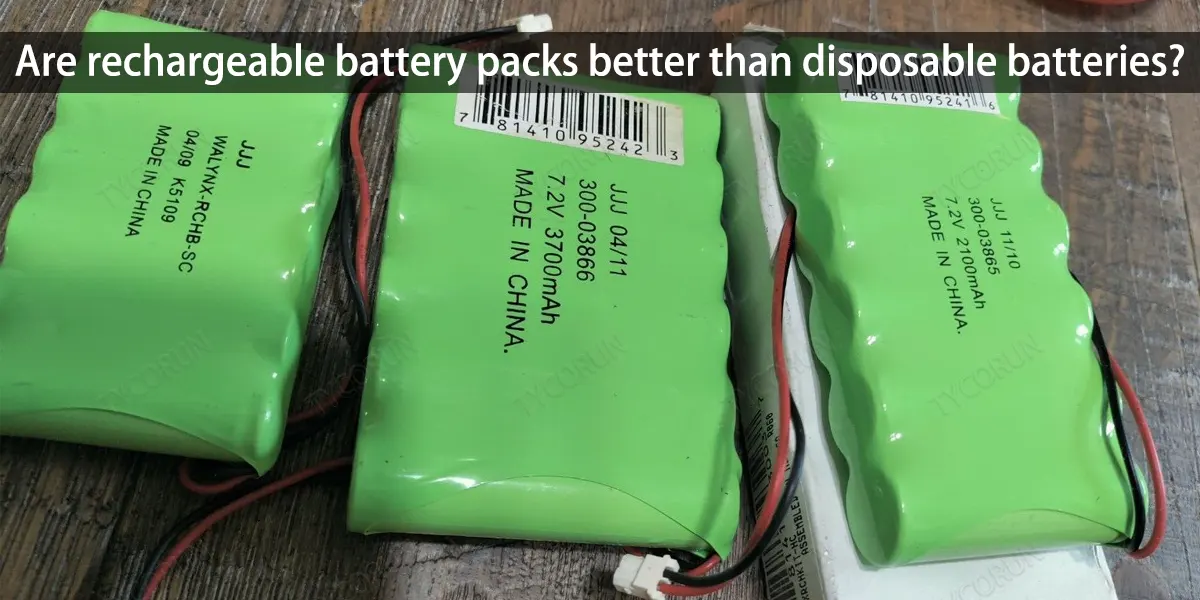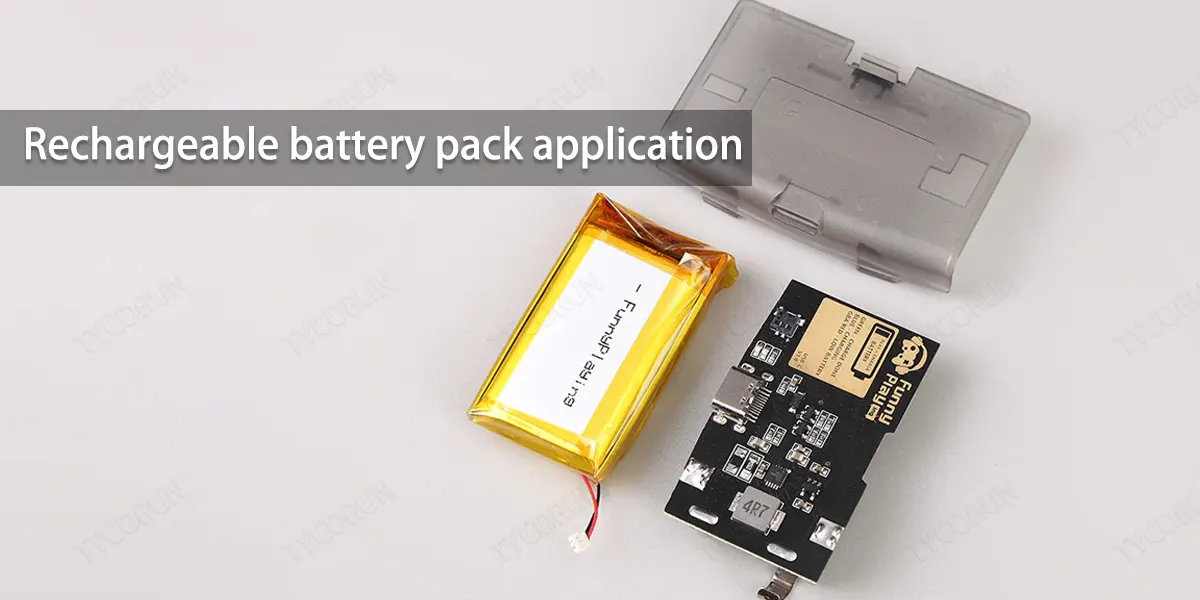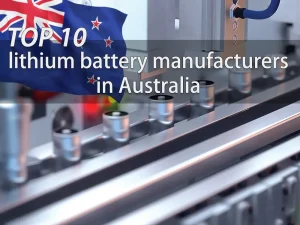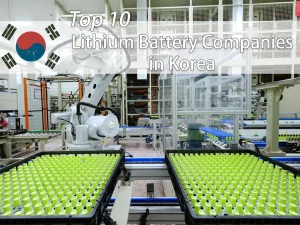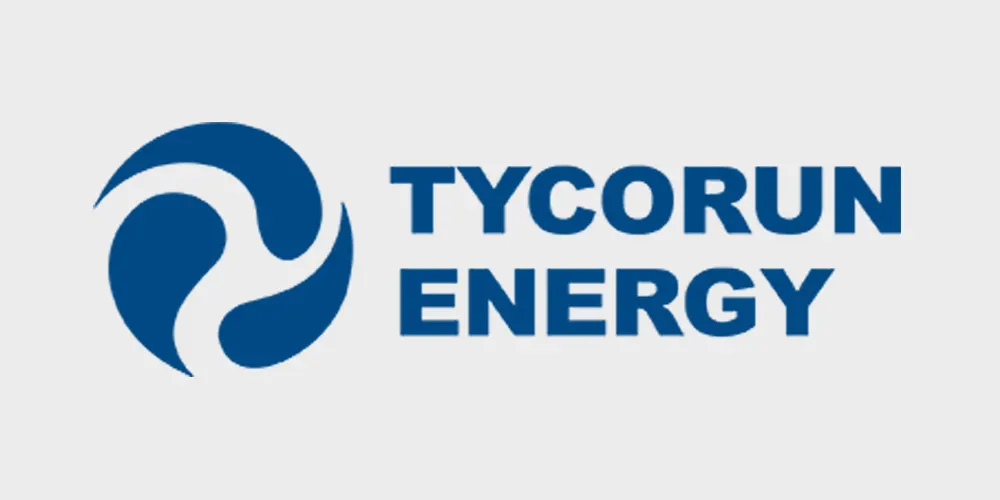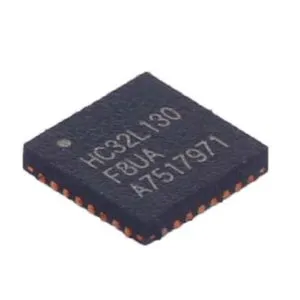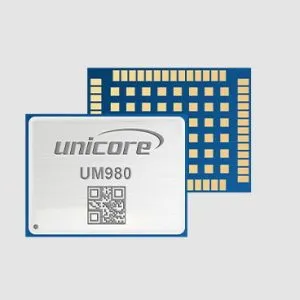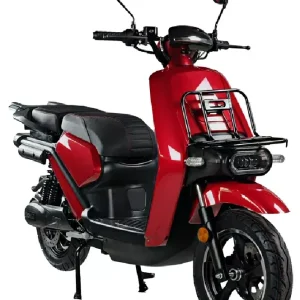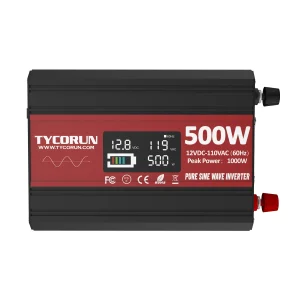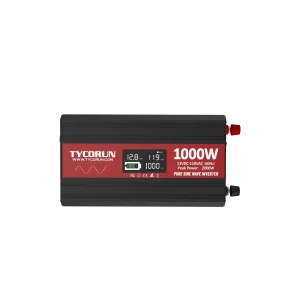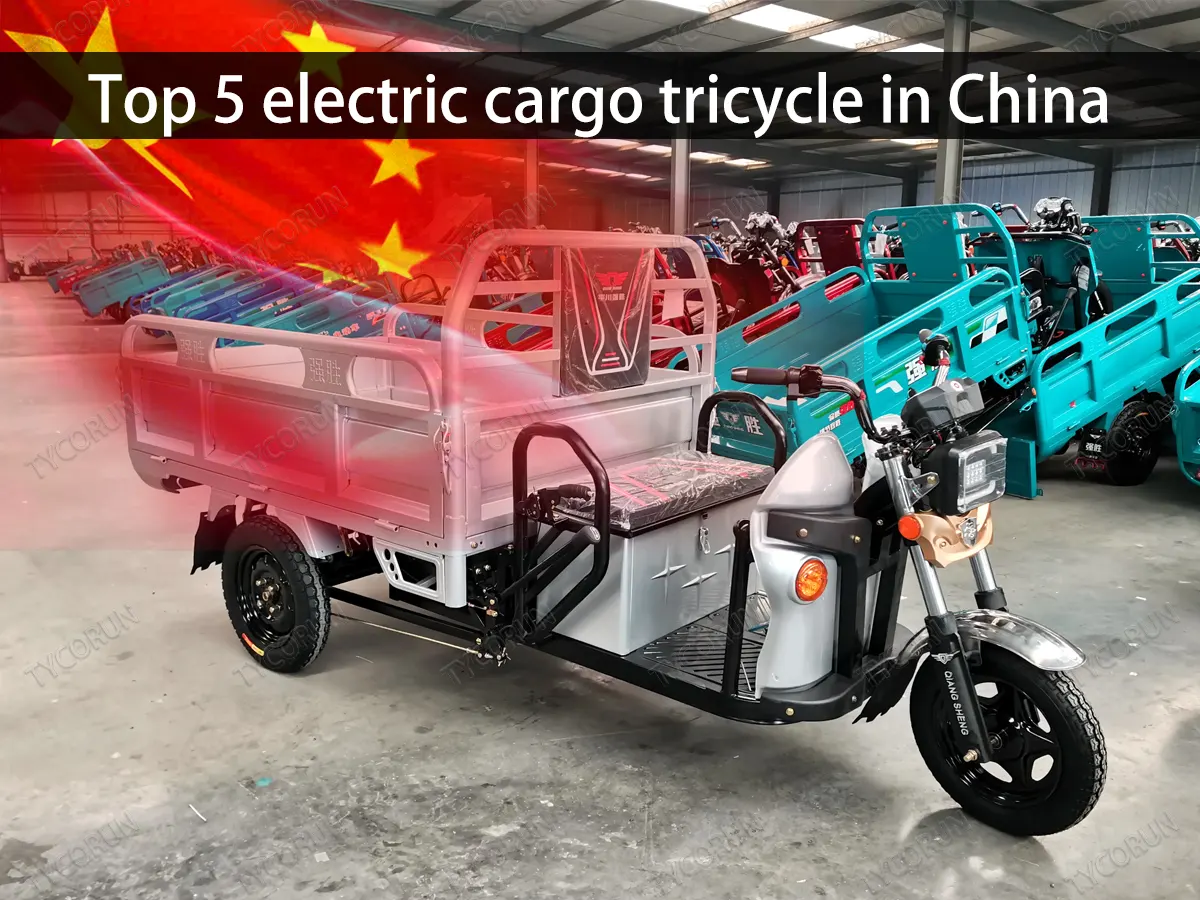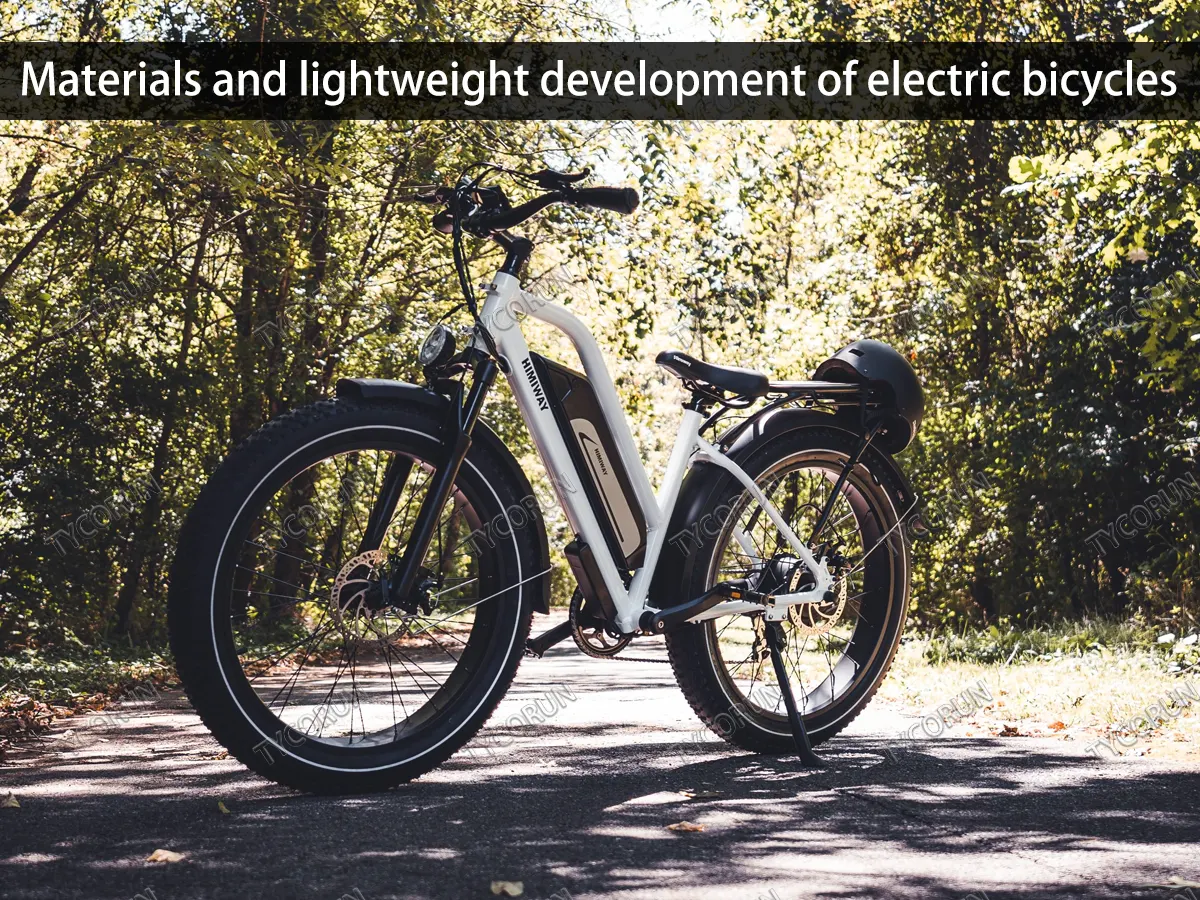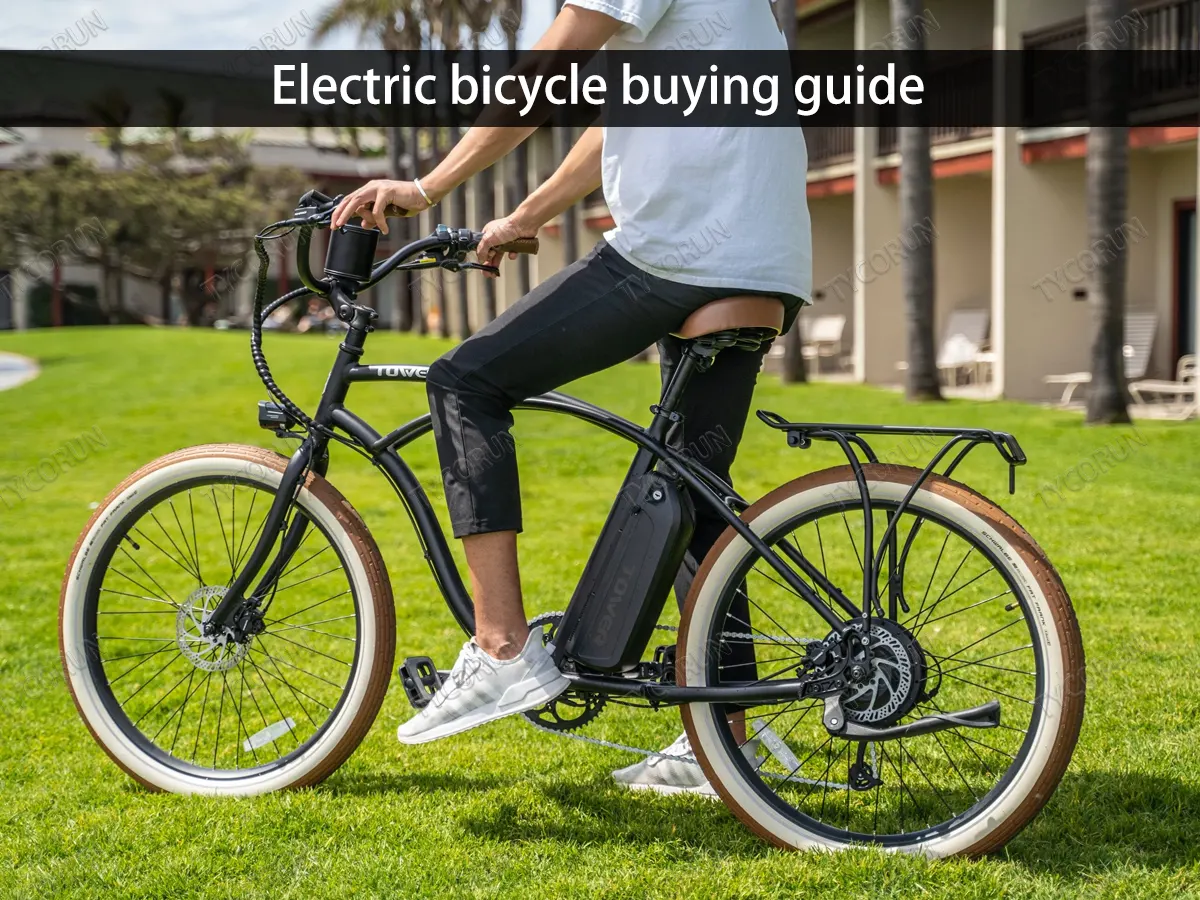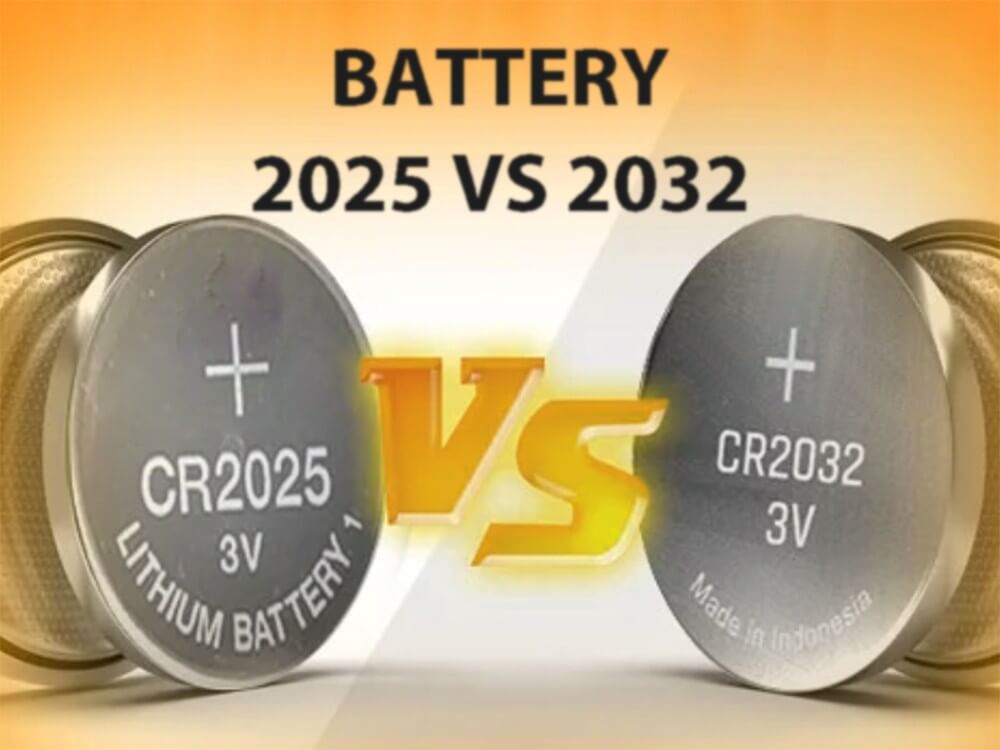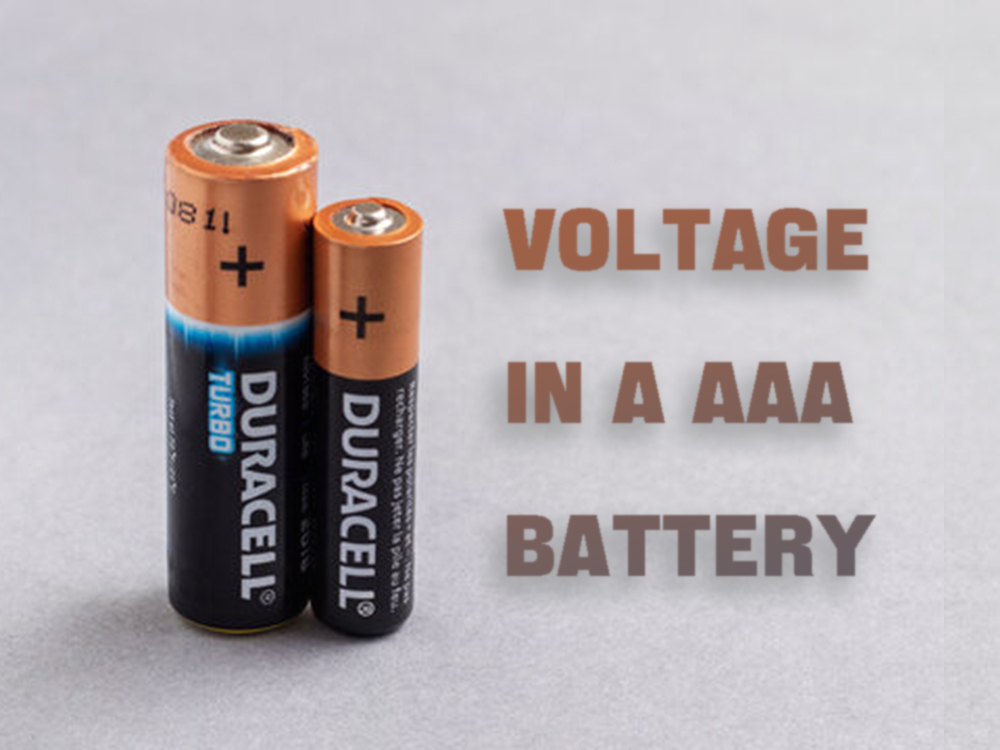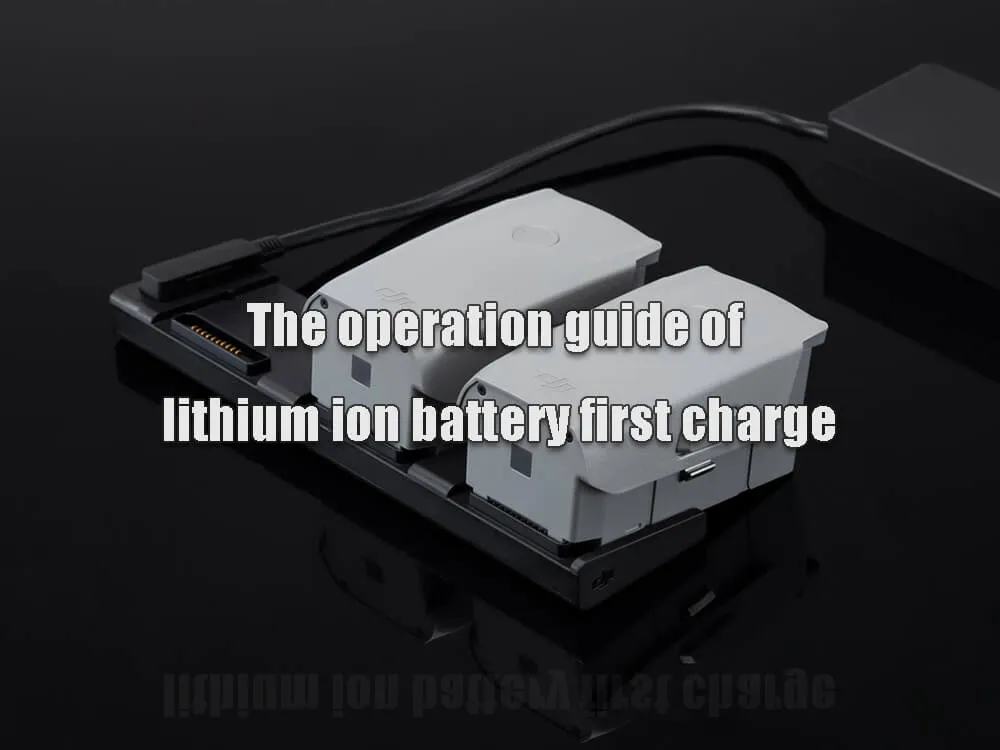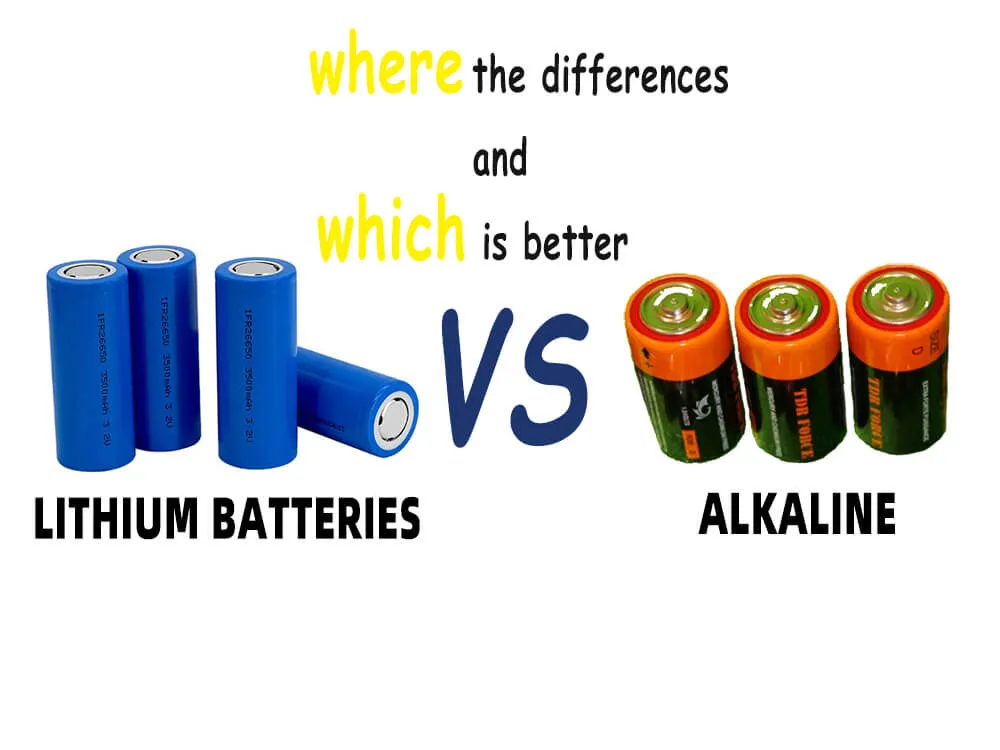Home » rechargeable Lithium Batteries » Rechargeable battery pack – types and application introduction
Rechargeable battery pack - types and application introduction
What is a rechargeable battery pack?
Basically, it is a battery that can be easily recharged and used multiple times.
Unlike disposable batteries (that are only designed for single use), a rechargeable battery pack is specifically built to be used for a number of time. This ability makes it a more sustainable option as compared to other batteries available on the market.
Now, let us explain its working in detail.

How does a rechargeable battery pack work?
As we have already mentioned above, a rechargeable battery pack utilize a special chemical reaction for both storing and releasing energy.
When the battery pack is being charged, an electric current is applied to it that causes a chemical reaction and ends up stored in the form of energy. The energy is then stored in the battery’s special cells. The cells are made up of different materials like lithium, cadmium, nickel, etc.
When the battery is asked to power a device or electrical appliance, it then releases all of its energy gradually into the required device.
Remember, the chemical reaction that takes place in the rechargeable battery is reversible – which means when the battery is discharged, the stored energy is released as an electric current in the attached device or appliance.
The rechargeable battery pack comes with a battery charger that applies electric current to the battery. The charging process usually takes a maximum of one hour. However, the time may vary depending on the type and capacity of the rechargeable battery.
Different types of rechargeable battery packs
1.Nickel Cadmium Battery:
This battery is one of the earliest types of rechargeable batteries and is highly known for its ability to handle high current loads and high discharge rates.
Apart from these two benefits, these batteries also have a downside. These are prone to memory effect that affects their overall capacity with time. Wondering what the memory effect is? Let us explain.
The memory effect is when the nickel-cadmium battery is not fully discharged before re-charging it. This causes the battery to remember shortened runtime, which further results in reduced capacity.
2.NiMH (Nickel Metal Hydride Batteries):
NiMH is yet another type of rechargeable battery pack that is composed of hydrogen-absorbing alloy and nickel oxide hydroxide. These batteries offer more density as compared to Nickel-cadmium batteries and also have a lower memory effect.
For these reasons, these batteries are being used in many applications of human life, such as:
● Portal electronic appliances
● Powerful tools
● Hybrid vehicles
3.Lithium-ion batteries:
Lithium-ion batteries are one of the best rechargeable batteries, although there are several reasons behind their popularity. For example, these batteries offer maximum high density, low discharge rate, prolonged life span, and many more.
Additionally, these are composed of lithium cobalt oxide and a graphite anode and are commonly used in the following things:
● Mobile phones or tablets
● Laptops
● Electric vehicles and devices
4. Lead-acid batteries:
This type of rechargeable battery pack is composed of sulfuric acid electrolyte, lead dioxide, and lead. These batteries offer low-cost pet watts and can easily handle high current loads. However, these have a lower energy density as compared to other types that are discussed above.
These batteries are widely used in:
● Emergency lighting
● Backup power system
5.Sodium-ion batteries:
Sodium-ion batteries is the last type of rechargeable battery pack on our list. These make use of sodium instead of lithium. This is why these are considered modern batteries. These offer high energy density and low cost per watt. However, these are still in development, that is why they are not widely available and used.
What are the best rechargeable battery packs available?
Lithium-ion batteries are one of the best rechargeable battery packs available in the market and online platforms.
There are multiple reasons why these are considered the best option:
● Higher energy density: Lithium-ion batteries have the ability to store maximum energy in smaller sizes.
● Low self-discharge: This ability indicates that these can hold their stored charge for a prolonged period of time.
● Maximum lifespan: Lithium–ion batteries offer a longer lifespan, which means these can be charged and discharged several times.
Contact us to get the latest rechargeable battery pack!
How long does a rechargeable battery pack last?
There is no definite answer to this question because the lifespan of a rechargeable battery pack depends on several factors that are listed below:
1.Type of battery you have
2. How you are using it (carefully or carelessly)
3. Environmental conditions
4. Usage patterns
Usually, lithium rechargeable battery pack is long-lasting, with a lifespan of 3-5 years.
Are rechargeable battery packs better than disposable batteries?
Yes! Rechargeable battery packs are better than disposal batteries; there are multiple reasons behind “yes”. Those reasons are as follows:
1.Powerful and durable:
Reusable batteries are generally more powerful and durable as compared to disposable batteries. This makes them a more suitable option for charging electronic devices, especially those that require more power.
2.Environment friendly:
We all know that disposable batteries contribute to increasing environmental pollution. Disposable batteries equipped with toxic chemicals that can get their way into soil and then into water resources.
However, that’s not the case with a rechargeable battery pack; it produces less waste and contributes to reducing environmental pollution.
3. Cost-effective :
Rechargeable batteries are cost-effective than disposable batteries, this is so because they can be reused multiple times, while disposable batteries are only suitable for single-use. This means after one use, you will have to replace them.
Advantages and disadvantages of using rechargeable battery pack
Advantages:
Cost-effective in the long run: rechargeable battery pack may have a higher upfront cost, but they can be recharged and reused multiple times, which can save money in the long term.
Environmentally friendly: rechargeable battery pack helps reduce waste from disposable batteries, as they can be used for an extended period of time before needing replacement.
Convenient: rechargeable battery pack eliminates the need to constantly purchase and dispose of disposable batteries, making them a convenient and hassle-free option.
Disadvantages:
1.Costly:
A rechargeable battery pack usually has a higher upfront cost as compared to disposable batteries. This can become a real hassle if you are on a tight budget.
2.Sensitive to extreme temperatures:
Some rechargeable battery packs, especially lithium-ion, can be sensitive to extreme temperatures. This means you will have to arrange a special storage place for them.
Rechargeable battery pack application and how to choose
1.Portable electronic devices/appliances:
A rechargeable battery pack is widely used to power portable electronic devices or appliances; some of these devices are listed below:
● Emergency light battery
● Tables
● Medical device
2.Electric vehicles (EVs) and power tools:
This is yet another essential application of rechargeable battery packs. These batteries play a vital role in electric vehicles, especially cars, by providing them with the power of propulsion.
Apart from this, these batteries are also being used in powerful tools like trimmers, drills, saws, and others. If you want to get to know more about, here the drill battery can help.
3.Renewable energy storage:
Finally, rechargeable batteries are being used for storing energy generated from renewable sources such as solar panels, wind turbines, and many more.
Now, let us explain how you can choose the right rechargeable battery pack.
In order to choose a good battery, you will have to consider the following factors:
● Capacity: First of all, you have to consider the capacity. The higher the capacity, the longer the rechargeable battery pack will last.
● Voltage: Ensure that the voltage of the battery pack matches the voltage requirements of your device.
● Compatibility: Check if the battery pack is compatible with your device or if it comes with the necessary adapters or connectors.
● Charging Time: You should also consider the charging time required for the battery pack to fully recharge.
Tips for increasing the lifespan of rechargeable battery pack
1. Avoid deep discharges: You should always try to avoid fully discharging the battery pack before recharging it.
2. Avoid extreme temperatures: If the temperature in which the rechargeable battery pack is stored is too hot, then this can accelerate the degradation of the battery.
On the other hand, if the temperature is too cold, then it affects its overall performance. So, try to store it at a normal temperature.
3. Use the right charger: Finally, you should always use the original charger of the rechargeable battery pack. If you use an incompatible charger, it can damage its performance.


